Best Cryptocurrency Wallets to Secure Your Digital Assets [2020]
If you’re interested in buying or selling cryptocurrency, one of the first things you’ll need to do to get started is to choose a cryptocurrency wallet. Although cryptocurrency wallets don’t technically store digital currency, they do store records of your transactions on the blockchain. Instead of holding actual coins, your monetary balance changes, representing a transaction. Wallets are kept secure by means of public and private keys, which must be identical in order for a user to receive funds.
The company was created as a combined effort of financial professionals and experts in web-commerce with the goal of perfecting the online experience for retail traders.
82% of retail investor accounts lose money when trading CFDs with this provider. You should consider whether you can afford to take the high risk of losing your money
Plus500 is a FTSE 250 listed brokerage providing online trading services in CFDs, across 2,000+ securities and multiple asset classes.
eToro is a multi-asset investment platform. The value of your investments may go up or down. Your capital is at risk.
The advantage of a cryptocurrency wallet, as opposed to storing digital currency on an exchange, is that it is safer and more convenient. But different wallets offer different levels of security, so you should become familiar with the different types available.
Cryptocurrency wallets come in several different forms:
- Hardware – Hardware wallets store private keys on an external hardware device, rather than online, which offers more security.
- Software – Software wallets can be installed on a desktop, online, or on a mobile phone. Software wallets are connected to the internet and as a result, are more susceptible to hacking or theft than a hardware wallet.
- Paper – Paper wallets can refer to actual paper copies of your public and private keys as well as software that keeps both safe and secure. Paper wallets have a reputation of being simple to use and it being easy to transfer coins from them to a software wallet.
In this guide we’ll cover a few of the most important criteria for selecting a cryptocurrency wallet, as well as a rundown of the top 10 wallets from 2018.
1. Ledger Nano S
| Ledger Nano S Key Information | |
| Logo: |  |
| Type: | Hardware |
| Cost: | ~$100 |
| Ease of Use: | Difficult (for beginners) |
| Transfer Fees: | Fees for bitcoin transfers determined acc to Satoshis per byte |
| Anonymity: | Medium |
| Supported Coins: | Over 712 |
| Supported Operating System: | Windows, Mac and Linux |
| Exchange Integration: | Etherdelta, Radar Relay |
| Private Keys: | Controlled by user |
| Website: | Buy Ledger |
As one of the biggest hardware wallet names, Ledger competes fiercely with other leading hardware wallets even though it only came into the market in 2014. Recently, Ledger partnered with Blockchain to announce an exclusive hardware wallet by the name of Lockbox. The company has also announced that it will expand support to stablecoins, including Tether. In addition, the blockchain startup IOTA announced that it is working towards making IOTA suitable for the Ledger Nano S.
Read Also: How to use Nano Ledger S – Step-by-step Guide
Ledger Pros
As a Bitcoin wallet, Ledger Nano offers what is referred to as “cold storage,” meaning that it isn’t connected to the internet and is far less likely to be hacked than a software wallet. Simple to use and inexpensive, Ledger Nano offers multi-currency support. In addition, it offers top-notch security as the private key is stored offline – meaning that it is almost impossible to hack your Ledger Nano S wallet.
Ledger Cons
Since you need to be able to plug the Ledger Nano S in with a USB, it can be a bit inconvenient if you want to be able to get to your coins while traveling. In other words, this hardware wallet is targeted more towards users who want to store large amount of bitcoin over the long run. If you’re looking to use Bitcoin in smaller, daily transactions, an online digital wallet might be a better choice for you.
2. Trezor
| Trezor Key Information | |
| Logo: | |
| Type: | Hardware |
| Cost: | $78 – $169, depending on the model |
| Ease of Use: | Average |
| Transfer Fees: | Dynamic fees |
| Anonymity: | Medium |
| Supported Coins: | 690 |
| Supported Operating System: | Windows, Mac, Linux |
| Exchange Integration: | Changelly |
| Private Keys: | Controlled by owner |
| Website: | Buy Trezor |
As the first Bitcoin wallet in the market, Trezor has a strong reputation for reliability, security and excellent customer support. It did suffer a security vulnerability in 2017 but it was fixed promptly by the Trezor team in a firmware update. Recently, Trezor has expanded its cryptocurrency support to Monero, Cardano, Stellar, Ripple, and Tezos, along with other altcoins.
Read Also: How to use Trezor Wallet – Step-by-step Guide
Trezor Pros
Easy to use with a web interface, Trezor is a good choice for anyone choosing their first cryptocurrency wallet. One of the best features of Trezor is that it can be used with computers that aren’t 100% safe, that have either been hacked or infected with malware. It also features a passphrase to ensure your coins aren’t stolen even if your wallet is stolen.
Trezor Cons
Although Trezor is an ideal option for anyone wishing to store large amounts of bitcoin, it means that you must carry the hardware wallet around with you to spend the currency.
In addition, Trezor is a bit pricey compared to its competitors, although it has recently lowered its price.
3. MyEtherWallet
| MyEtherWallet Key Information | |
| Logo: | |
| Type: | Software, web-based |
| Cost: | Free |
| Ease of Use: | Easy |
| Transfer Fees: | Mostly just GAS, some services take a fee |
| Anonymity: | High |
| Supported Coins: | 1000s |
| Supported Operating System: | Windows, Mac and Linux |
| Exchange Integration: | Kyber Network |
| Private Keys: | Controlled by user |
| Website: | Download MyEtherWallet |
MEW enables users to interact with the Ethereum blockchain and add ERC20 tokens to their wallet, enabling it to support thousands of tokens. Although it seems to be web-based and accessible via a Chrome extension, MEW does not store data via its servers, and therefore claims to be an offline wallet. In April the company was hit by a DNS attack that incurred losses for its users. Recently, MEW announced that it would launch a new mobile wallet app with hardware wallet capabilities on iOS.
MEW Pros
A free, open-source hot wallet, MEW has an intuitive interface to make it easy for new users. With MEW, users can interact directly with Ethereum while maintaining control of their private keys.
MEW Cons
If you lose your private key to this wallet, MEW cannot help you recover your coins. The wallet has also suffered several phishing and hacking attacks.
4. Jaxx Liberty
| Jaxx Wallet Key Information | |
| Logo: | |
| Type: | Software, web and mobile |
| Cost: | Free |
| Ease of Use: | Average |
| Transfer Fees: | Ethereum standard fee is .000441 ETH; similar fee for Bitcoin and other cryptocurrencies |
| Anonymity: | High |
| Supported Coins: | More than 70 |
| Supported Operating System: | Windows, Max, Linux, Android, iOS |
| Exchange Integration: | Shapeshift, Coinbase, Bittrex, Bitpay, Changelly |
| Private Keys: | Controlled by owner |
| Website: | Download Jaxx from Google PlayApp Store |
Launched in 2014, the Canadian wallet is known for its reliability and safety. Its integrated exchange allows quick conversion to and from different coins while staying within the Jaxx platform. Recently, the company announced the release of the new Jaxx Liberty, a cross-platform wallet that offers a backup phrase and password for added security.
Jaxx Pros
Easy-to-use and available on Android, iOS mobile and tablets and as an extension on Chrome and Firefox, Jaxx is a good option for those seeking an online wallet.
Jaxx Cons
As it is not an open-source wallet, Jaxx can be slow to load. It is also known to offer limited customer support. Since it is a hot wallet that is connected to the internet, it is best not to store large numbers of coins in the event of a hack.
Read Also: The Best-multi-cryptocurrency Wallets
5. Electrum
| Electrum Key Information | |
| Logo: |  |
| Type: | Software, desktop and mobile |
| Cost: | Free |
| Ease of Use: | Average |
| Transfer Fees: | 0.2 mBTC and 0.1 mBTC |
| Anonymity: | Medium |
| Supported Coins: | Bitcoin |
| Supported Operating System: | Windows, Mac, Linux, OSX and Android |
| Exchange Integration: | None |
| Private Keys: | Controlled by owner |
| Website: | Download from Google Play |
Developed to be lightweight and efficient, Electrum today is also known as one of the most secure bitcoin wallets in the market. As an open-source wallet released in 2011, it has developers constantly adding to its source code. Recently, Electrum announced that it plans to integrate the Lightning Network into its wallet services.
Electrum Pros
Electrum integrates with any of the major hardware wallets like Trezor and Ledger Nano S. Its encryption is similar to that of a bitcoin private key, making it one of safest bitcoin wallets on the market. Since it is not tied to a specific server, it allows for better speed and no downtime.
Electrum Cons
Since Electrum is a wallet that solely supports bitcoin cryptocurrency, it is also not a good choice for those wanting to get their feet wet in the world of cryptocurrency wallets.
6. Keepkey
| KeepKey Key Information | |
| Logo: |  |
| Type: | Hardware |
| Cost: | $129 |
| Ease of Use: | Easy |
| Transfer Fees: | Fastest and cheapest is 8 satoshis/byte (median transaction size of 226 bytes – fee of 1800 satoshis) |
| Anonymity: | High |
| Supported Coins: | 45 |
| Supported Operating System: | Windows, Mac, Linux |
| Exchange Integration: | Shapeshift |
| Private Keys: | Stored on device |
| Website | Buy From Amazon |
An open-source wallet, KeepKey has become popular among cryptocurrency investors since its launch in 2015. In June, it expanded its support to include ERC20 tokens. After its acquisition in August by Shapeshift, the exchange was integrated into the hardware wallet, allowing faster trading.
Keepkey Pros
KeepKey supports a wide variety of cryptocurrencies, and is constantly adding support to additional altcoins. With a reputation for its security, it is known as an HD wallet with attractive packaging.
Keepkey Cons
KeepKey doesn’t have the same reputation for reliability and security as Ledger Nano S or Trezor, although it does have a way to recover the wallet if lost or stolen without compromising its private keys. Although the price has decreased since it first came out, it is still a bigger investment than other hardware wallets.
7. Exodus
| Exodus Key Information | |
| Logo: |  |
| Type: | Software, web-based |
| Cost: | Free |
| Ease of Use: | Easy |
| Transfer Fees: | Bitcoin fees determined by amount of traffic on network (median transaction size of 226 bytes – fee of 1800 satoshis) |
| Anonymity: | High |
| Supported Coins: | More than 34 |
| Supported Operating System: | Windows, Mac, Linux |
| Exchange Integration: | Shapeshift |
| Private Keys: | Controlled by owner |
| Website: | Download Exodus |
Compared to other wallets in the marketplace, Exodus is fairly new but extremely popular. It includes a wallet, a portfolio and exchange integration. In an effort to further expand its user base, Exodus recently announced its support of EOS and a partnership with TRON.
Read Also: How to use Exodus Wallet – Step-by-step Guide
Exodus Pros
The beautifully-designed user interface is easy-to-use and designed for beginners. As an open-source software, Exodus is free to use. Another advantage of Exodus is its built-in Shapeshift exchange which enables you to trade using a variety of different cryptocurrencies in addition to standard bitcoins. Transactions can all be done while inside the wallet, without ever having to leave for a separate exchange.
Exodus Cons
As a hot wallet, Exodus poses more of a security risk than a hardware wallet. It is also limited to use on the desktop only. If low transaction fees are a priority for use, you should use a different bitcoin wallet.
8. Bread
| Bread Key Information | |
| Logo: |  |
| Type: | Software, mobile |
| Cost: | Free |
| Ease of Use: | Easy |
| Transfer Fees: | None to send; Bitcoin fees according to the bitcoin network (median transaction size of 226 bytes – fee of 1800 satoshis) |
| Anonymity: | High |
| Supported Coins: | 100 |
| Supported Operating System: | Android and iOS |
| Exchange Integration: | Shapeshif |
| Private Keys: | Controlled by owner |
| Website: | Download Bread from Google Play or the App Store |
Known as one of the simplest bitcoin wallets on the market and one of the first to support bitcoin on the mobile wallet, Bread’s interface is highly intuitive and requires no registration or signup to get started. In May, it expanded its service to include support for ERC-20 tokens. It has also announced plans to develop its own built-in exchange.
Bread Pros
A good wallet choice for both beginners and advanced traders, Bread has a simple interface. It is also easy to download from the App Store or Google Play. As an open-source wallet, the code is available to the public.
Bread Cons
Bread users have reported that the app (both Android and iOS) freezes and that connecting to the bitcoin network can be slow. Bread also does not offer 2-factor authentication, although it is PIN-protected.
9. Enjin
| Enjin Key Information | |
| Logo: |  |
| Type: | Software, mobile |
| Cost: | Free |
| Ease of Use: | Easy |
| Transfer Fees: | Calculated dynamically or can be set by user |
| Anonymity: | High |
| Supported Coins: | More than 700 |
| Supported Operating System: | Android and iOS |
| Exchange Integration: | None |
| Private Keys: | Controlled by owner |
| Website: | Download Enjin |
A relatively new wallet launched in 2017, Enjin was developed with an eye towards the gaming industry. It now supports over 300,000 gaming communities. Recently Enjin announced support for ERC-721 and ERC-1155 as further support of the gaming industry’s move toward mass adoption of cryptocurrency.
Enjin Pros
As a quick and easy crypto wallet on the market, Enjin has a reputation for top-of-the-line security architecture, with security techniques like the Enjin Secure Keyboard and the rule of two encryption. In the event your device is lost or stolen, you can restore it with a 12-word passphrase.
Enjin Cons
As a closed-source app, Enjin doesn’t allow users to see the source code, so you can’t verify the security yourself.

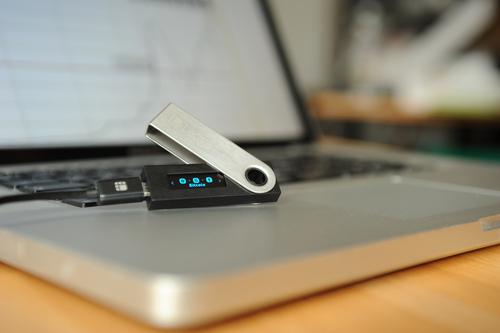


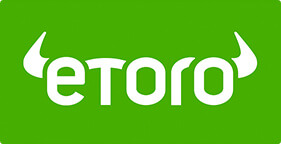
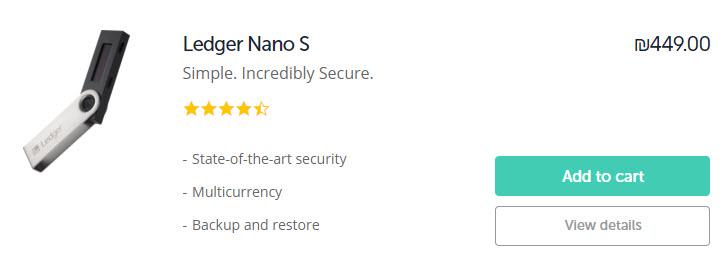

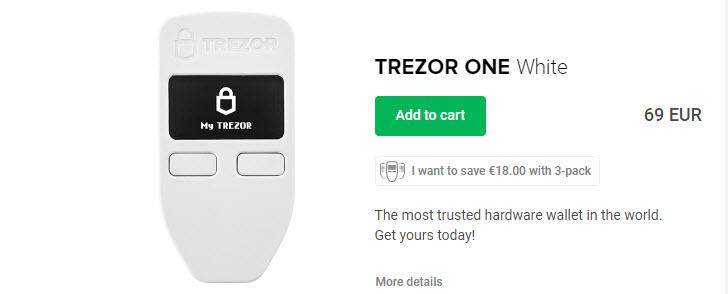

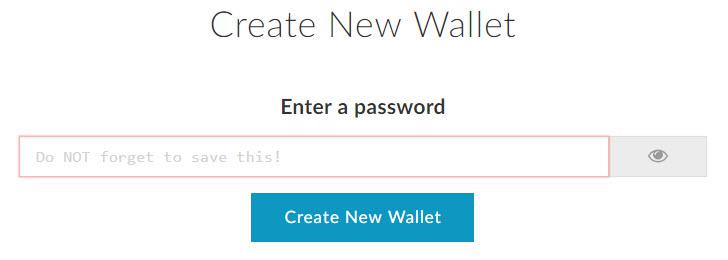


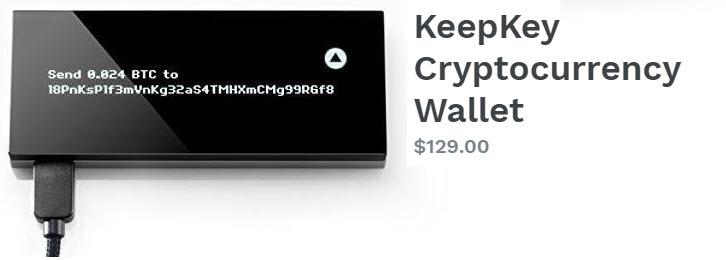


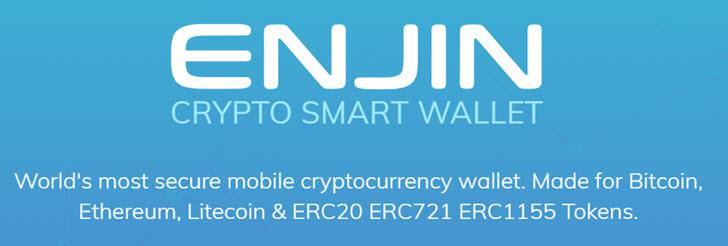
1 comment
Trezor’s seed combination thing is just the next level